How to Stop Dogs Eating Mulch? [5 Strategies]
When I started using mulch to improve my garden, one of my first problems was my canine companion: he immediately wanted to investigate and eat this material. I was alarmed for obvious reasons.
It goes without saying, dogs aren’t supposed to eat mulch. If a canine eats too much of this material, there could be serious repercussions that we’ll learn about later. I’d put down the mulch to help my plant health, not to be devoured by my pooch!
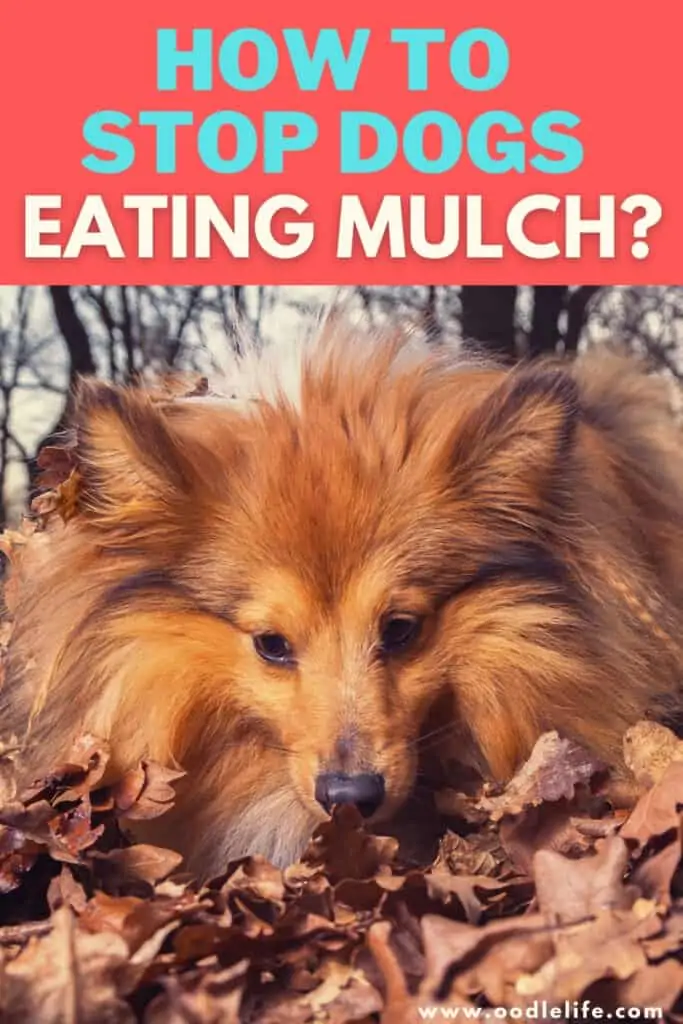
But why did this happen? Well, my dog has an amazing sense of smell like yours probably does. They tend to investigate new and strong smells on their territory and other places around them.
If you’re a gardener, you know that mulch tends to have a distinctive smell, and dogs will gravitate toward it.
The fact mulch usually includes wood chips (though there are SO many different mulch types) means that it has a chewy morsel that your dog will find irresistible. Unfortunately, though, chewing on wood chips can be dangerous for dogs. If your pooch swallows any of the wood, he may suffer from serious medical problems such as a blocked trachea or intestinal passages.
What Is Mulch?
Mulch is a material, or more accurately, a combination of materials that you put down in your garden to help retain moisture in the soil and prevent weed growth. When you use mulch, you usually don’t have to water as intensively. It also means a lot less time weeding and dealing with pest issues.
There are both organic and inorganic mulch varieties available. Organic mulches are the most popular, and they’re the ones we’re talking about here. They may include various materials, such as wood chips, compost, grass clippings, straw, chopped leaves, pine needles, or sawdust.
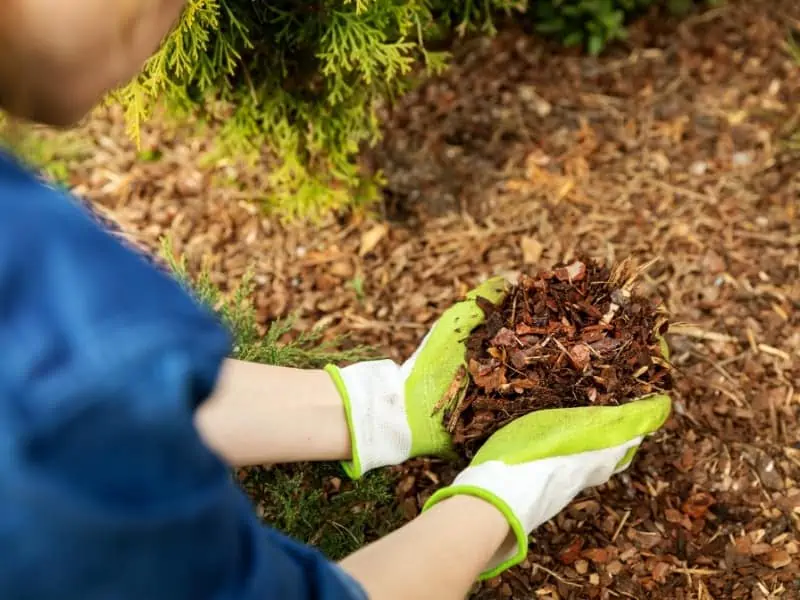
Why Is Your Dog Eating Your Mulch?
If you’re a dog owner, you’re probably already confused why these loveable animals love eating so many strange things. Let’s talk about why your dog may be eating mulch below.
Boredom or Anxiety
Sometimes it’s simple boredom or anxiety that makes your dog want to chew on mulch. Make sure your dog is getting enough exercise during the day and that there isn’t anything in his life that may be causing excessive anxiety. Make sure to get him plenty of chew toys!
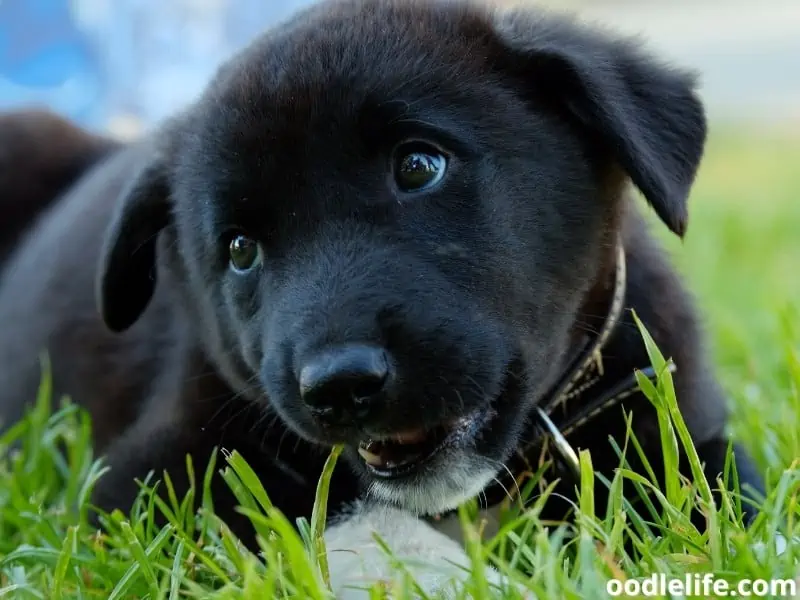
Curiosity
This ties into the boredom factor I discussed earlier. Your dog may see and smell the mulch and want to find out what it tastes like. Lots of animals have this same impulse to put interesting-smelling items in their mouth, much like human babies do.
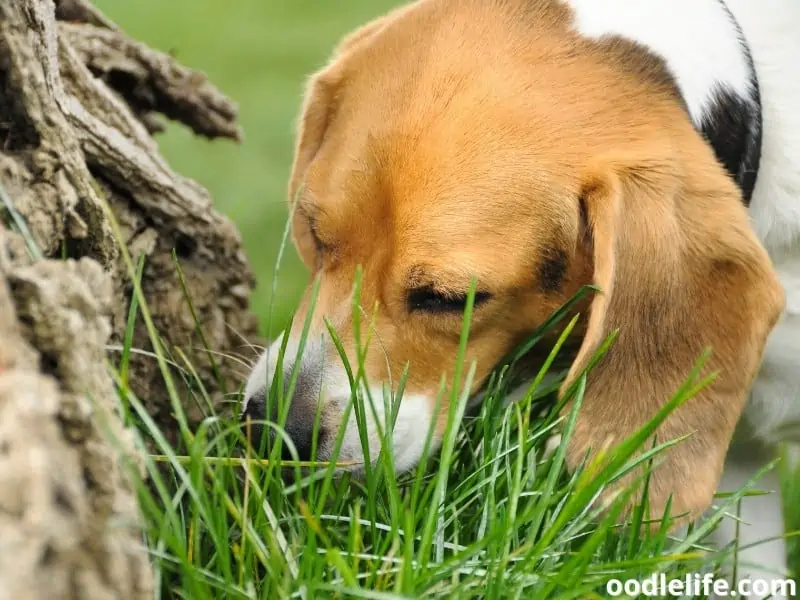
Impulse to Chew
The wood chips in mulch are one factor that makes it so attractive to dogs. They’re chewy, and anyone who’s ever had their slippers attacked by a Golden Retriever knows how much dogs love to chew.
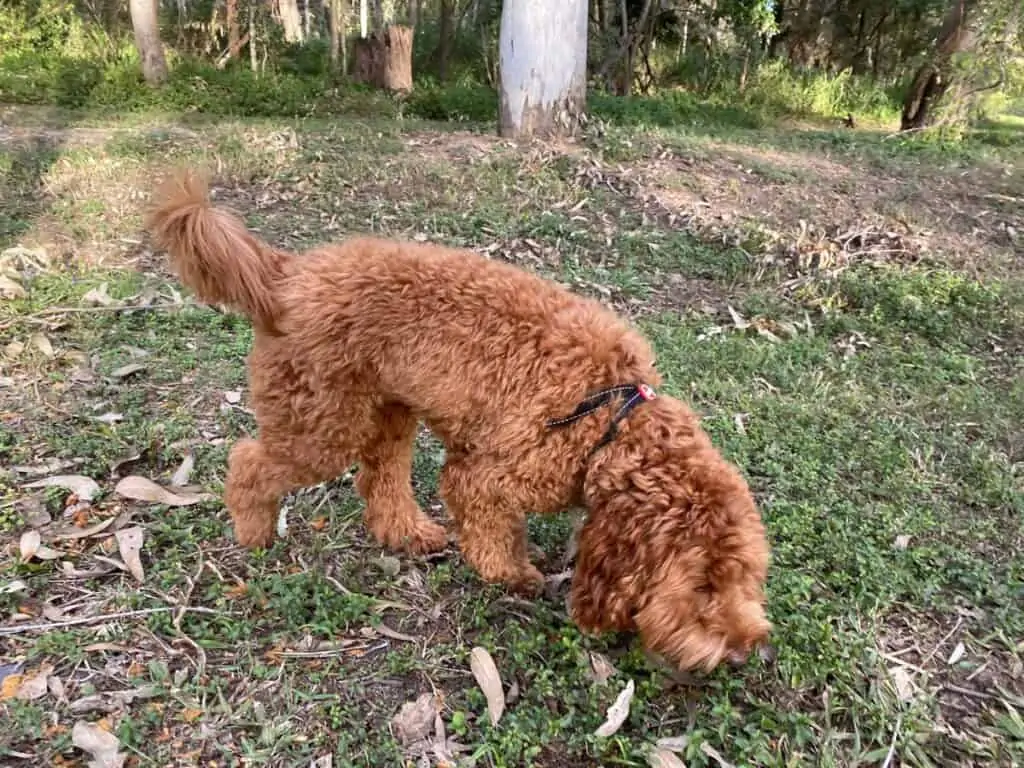
Why Is Mulch Bad for Dogs?
As I’ve already mentioned, the wood chips in mulch may get blocked in your dog’s trachea or digestive tract. That is the main reason mulch is so dangerous for your furry friend to nibble on.
There are other reasons mulch is hazardous, as well. Mulch is always moist on purpose, and it tends to carry mold and mold spores, many of which could be toxic for your dog. Sometimes mulch even has pesticide residues that your dog should never ingest.
If your dog has eaten mulch with hazardous mold growth or pesticides, you may notice your dog showing specific symptoms. If you see these symptoms in your pet, you need to bring him to a veterinarian immediately. These symptoms may include:
- Diarrhea
- Vomiting
- Tremors
- Seizures
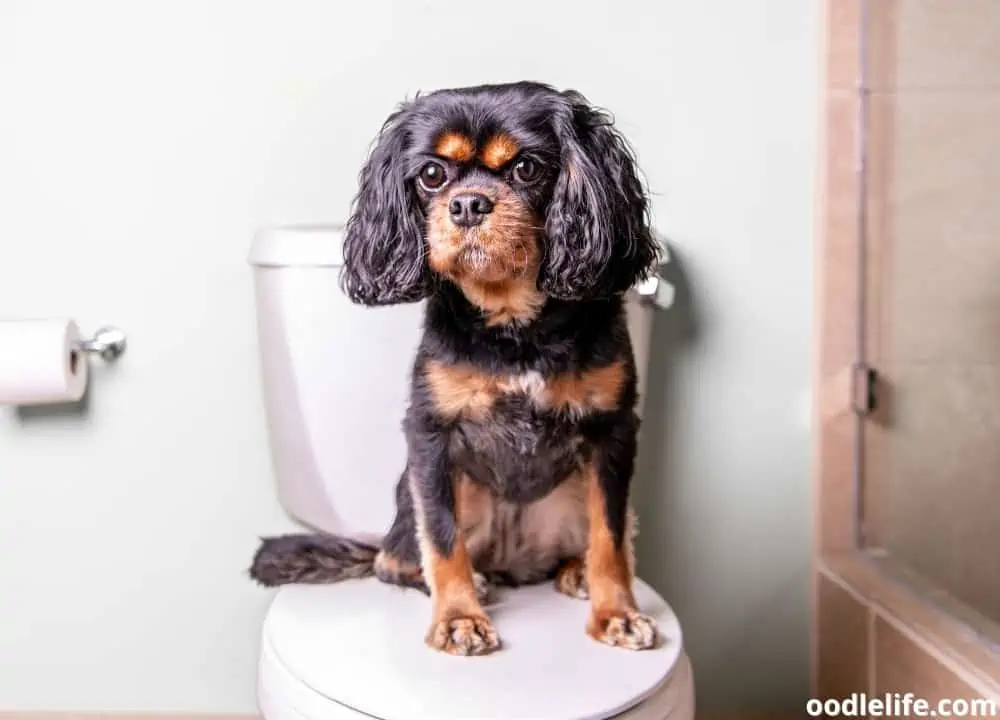
Ways to Stop Dogs Eating Mulch
Now you know why your dog tries to eat mulch and why it’s bad for them, let’s find out how you can stop your canine companion from consuming this gardening material.
Use a Barrier
If you only use mulch on limited areas of your property, consider putting up some kind of fencing or barrier around them. This will keep your dog away from your mulch, preventing them from eating it.
Dogs can jump, though, so keep this in mind. You’ll want to combine using barriers with one or more of the other methods we list here. You should also try to make the barriers too high for your dog to jump over if that is possible.
It may not be feasible with larger and more athletic dogs.
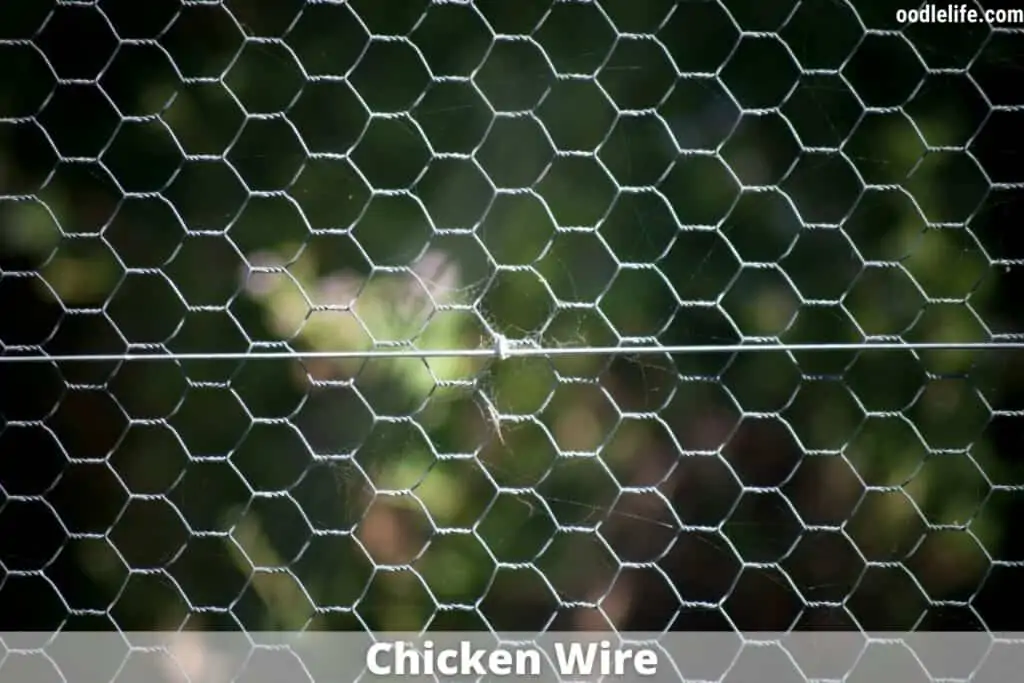
Start Training Them
The two main types of training are positive and negative reinforcement. Most modern dog trainers will correctly advise that you should stay with positive reinforcement whenever possible. It’s not only more effective, but it’s also better for your dog’s sense of emotional security.
If you don’t have experience with dog training, consult with a professional and your veterinarian. You should start training as early as you possibly can with your dog, ideally when he’s still a puppy.
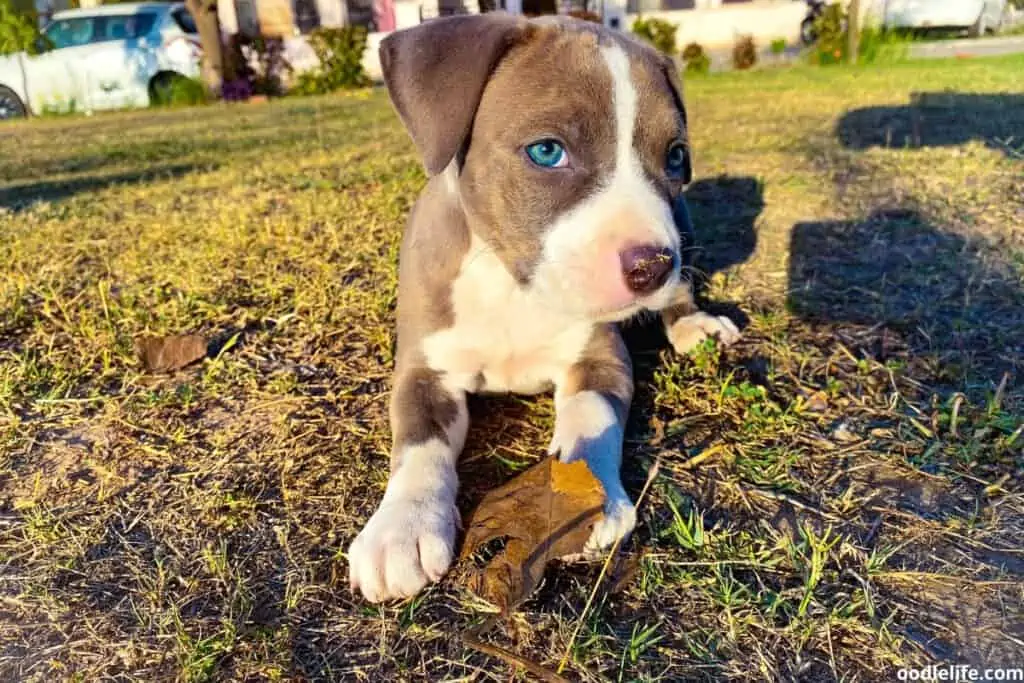
Offer Chew Toys
Help your dog burn off some of his impulses to chew with chew toys before taking him outside. That will make him less frantic to search for something to chew on in your or your neighbors’ gardens.
Puppies and younger dogs especially love to chew, so you’ll want to keep an eagle eye on them around mulch. You probably already have plenty of chew toys for your dog. Just make sure you make them accessible.
No matter what your dog’s age or breed is, they need the chance to chew. If you don’t give them chew toys and acceptable things to chew on, they will attack your mulch, not to mention your slippers and shoes.
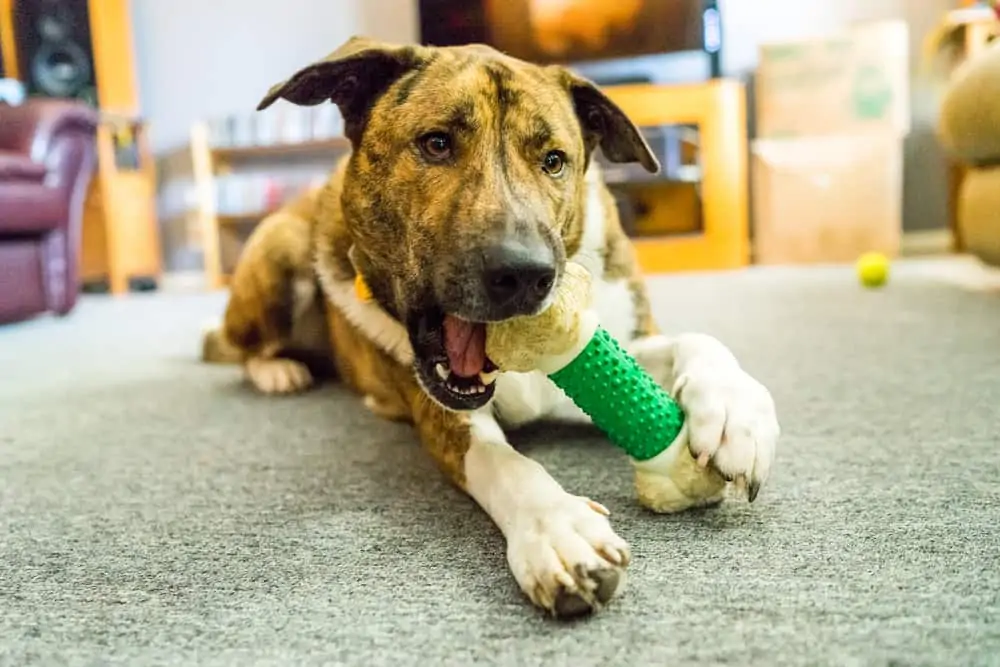
Try Anti-Chewing Sprays
Did you know there are anti-chewing sprays on the market? You can try using one of these on limited mulch areas on your property. While anti-chewing spray may be effective, this shouldn’t be the only technique you use.
Anti-chewing sprays are most useful when you use them in combination with some of the other techniques we’ve talked about here.

Control the Leash
Use the leash to keep him under control if your dog is lunging for the mulch on a neighbor’s lawn when out on walks. Be calm and consistent, not pulling too hard. If you do this every time your dog tries to reach the mulch, he will learn that that “treat” is not for him!
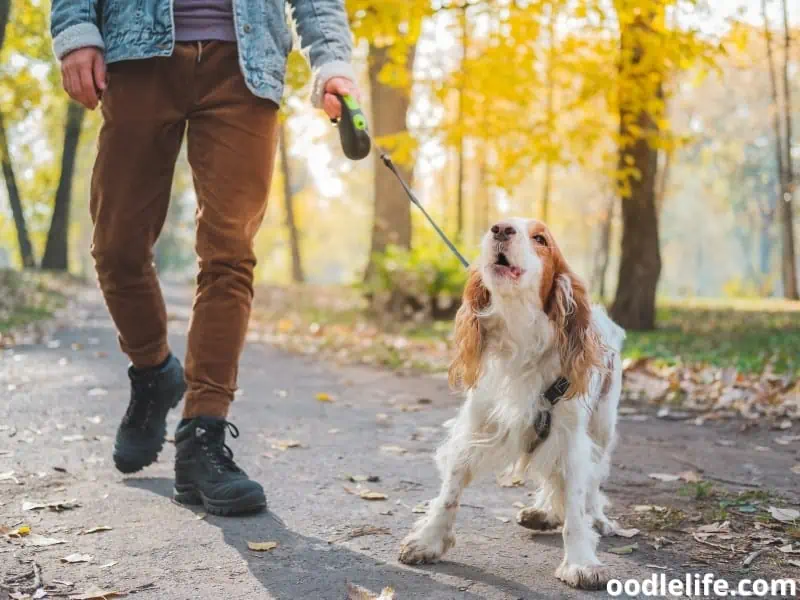
Final Thoughts – How to Stop Dogs Eating Mulch?
Now, you should know why your dog wants to eat mulch, why he shouldn’t eat it, and how to stop him from ingesting this potentially hazardous material. Make sure your dog doesn’t get the chance to chew on anything that may cause him harm, including mulch.